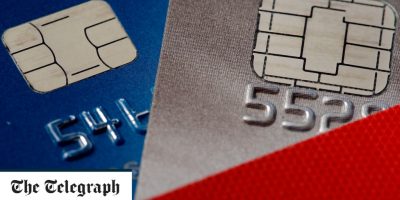"Unenforceable” bans by banks on cryptocurrency purchases fail to protect consumers and appear to put lenders’ interests first, experts have said. Lloyds Banking Group, which includes Lloyds, Bank of Scotland, Halifax and credit card provider MBNA, said in February that it was banning the purchase of cryptocurrencies via its credit cards.
The ban was introduced to protect the group’s 30 million customers from wild price swings in digital currencies such as Bitcoin, which soared in value last year to roughly $20,000 (£15,700) each but has since plummeted to less than $4,000. Credit providers in America also implemented bans, while in Britain, Virgin Money followed suit.
However, the banks are struggling to keep pace with the rapid rise in cryptocurrency exchanges and spread betting websites that advertise digital currency investments, it has emerged.
There is no one specific and recognised industry transaction code for cryptocurrency and it depends on whether the vendor is listed on a bank’s “blacklist” for transactions to be blocked. These lists are monitored and updated manually on an ad hoc basis and include some of the better known exchanges such as Coinbase, Telegraph Money understands, but are far from foolproof.
The hysteria surrounding Bitcoin in particular has led to the rise of investment scammers who use fake websites and trading companies to con people out of their savings, making the sector even harder to police. As a result, some transactions have managed to slip through the net.
Michael Merriman, 77, one of roughly three million MBNA credit card customers, lost about £30,000 to a suspected crypto scam after someone cold-called him and persuaded him to buy digital currencies through AAA Trade, a spread betting website. The site is authorised in the EEA (European Economic Area) and invites people to “join the crypto revolution” by allowing them to buy and sell more than 50 different digital currencies through its platform.
Mr Merriman made a number of deposits on the site using his MBNA credit card and the bank failed to block the transactions. He said he believed the trader who called him had managed to siphon away his money. He now faces trying to pay back his creditors.
“I am devastated and all but bankrupt. I have drawn down almost all the money I can from a lifetime mortgage plan,” he said. “This might result in me having to sell the house to pay off what I owe and move into rented accommodation, which I really don’t want to do.”
Lloyds said it tried to help customers retrieve money if they were disappointed with goods or services bought using its credit cards but was not liable to refund customers who invested in cryptocurrencies through trading platforms.
An MBNA spokesman said: “We sympathise with Mr Merriman’s situation but on this occasion we were unable to assist him and retrieve the money he lost.”
Credit:
Andrew Fox
Richard Emery of 4Keys International, a fraud consultancy, said the banks had given themselves an impossible task.
“Can banks stop people from buying investments that are available from an ever-increasing number of providers? I would argue that they cannot. In fact, I would question whether the banks should even be policing this – it’s simply not enforceable,” he said.
He said Lloyds and Virgin Money were right to be concerned but that it was virtually impossible to keep up with the growth of the sector, especially as fraudsters tried to launch and close down sham websites faster than they could be identified by the authorities.
Mr Emery also questioned the real motive for introducing the ban, which does not apply to debit cards. He suggested it could be because banks had a greater interest in protecting money lent to customers through credit cards than in protecting consumers’ own money held in their bank accounts.
“If they are that concerned about this issue, why is it that they are only banning it through credit cards? If they were serious about the ban they would implement it through all of their channels,” he added.
A spokesman for Virgin Money said: “We update our blocked merchant list on a continual basis to prevent cryptocurrency purchases and have robust controls in place to continuously monitor transactions and protect customers from fraud.”
AAA Trade told Mr Merriman the caller who persuaded him to invest had no connection with the company and that all its security checks designed to protect clients had been followed.
























Comments